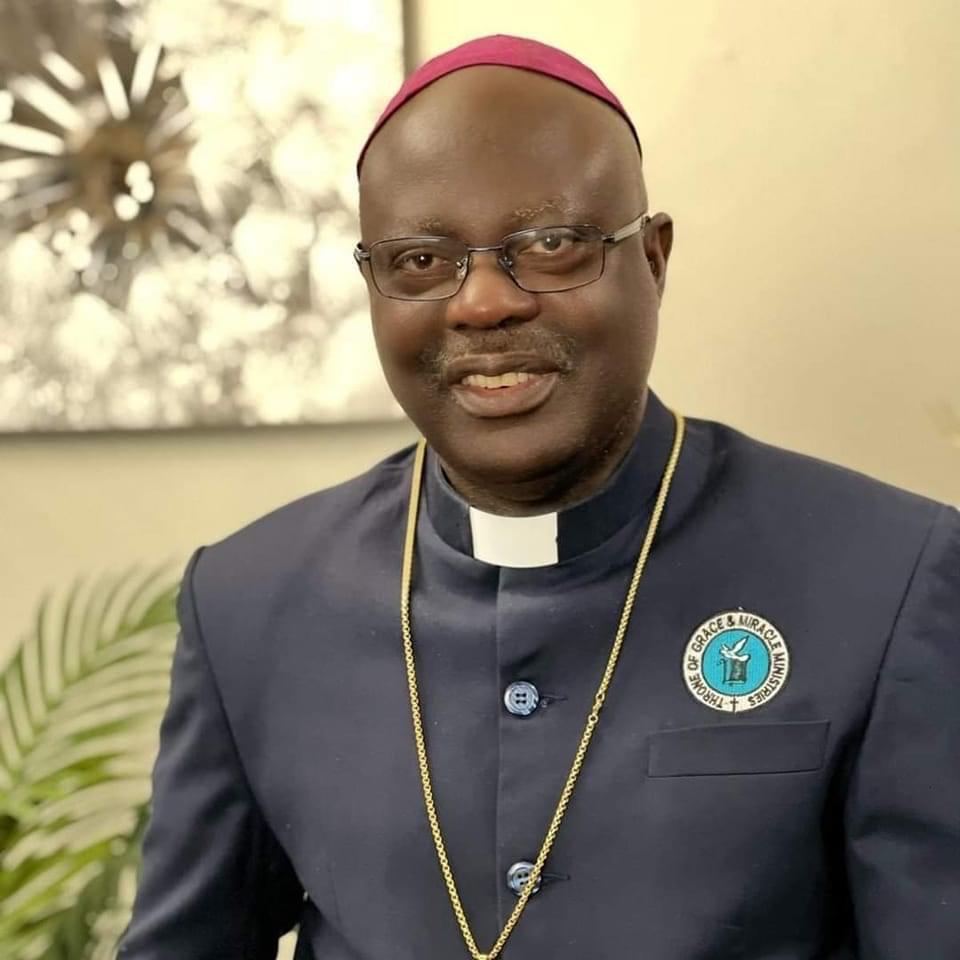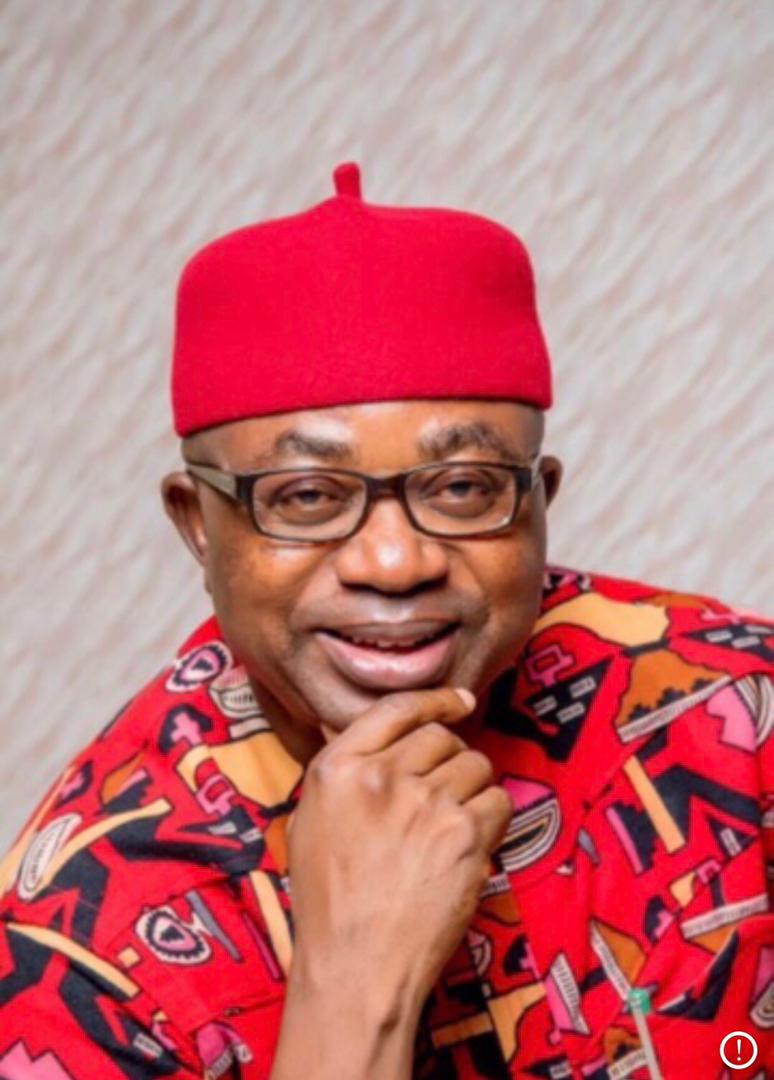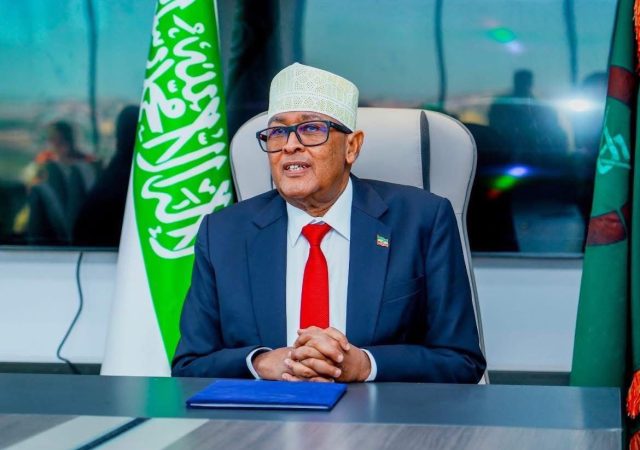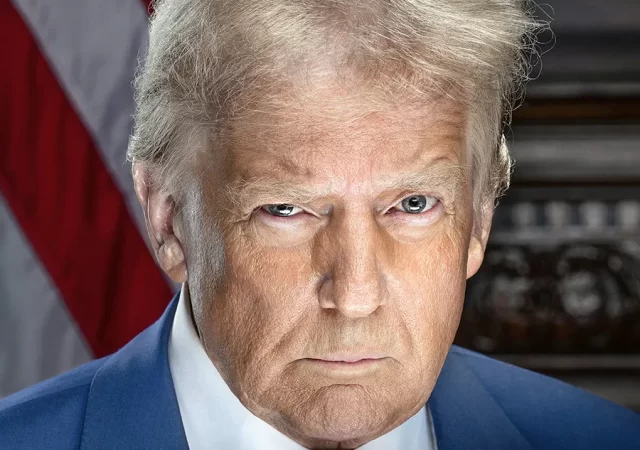
Bishop Kayode Akin Fanilola is a native of Ìdó-Èkìtì in Èkìtì State. He had his secondary education in Notre Dame College, Usi-Ekiti. He had his tertiary education at the University of Ilorin where he obtained his Bachelor, Master and Ph.D. degrees in Yoruba Language and Literatures. Fanilola started his teaching career at the University of Ilorin, Nigeria, Lincoln University in Pennsylvania and Morgan State University in Baltimore, Maryland where he pioneered the teaching of Yoruba Language.
He is the founding Pastor of Throne of Grace and Miracle Ministries with the headquarters in Baltimore, Maryland and the President of Mission and Crusade International. He was consecrated a Bishop in 2016 by the Kingdomway College of Bishops and Ministerial Alliance in the United States. As the President of Mission and Crusade International, he has carried the banner of the gospel to so many parts of the world. Fanilola has a strong passion for rural evangelism. He has embarked on many mission trips to Uganda, Rwanda, Burundi, Kenya and Nigeria. He has also conducted crusades in many African cities, towns and villages.
Dr. Kayode Fanilola is a prolific writer who has authored many life transforming books. Some of them are Fighting your Case in the Spiritual Court of Appeals, The Volcanic Anointing, The Pregnancy of God, Deliverance from the Darkroom of Life, Covenant Battle in the Market Place of Life, The Mysteries of Christ: From the Womb to the Tomb, Compass of Destiny, Provocative Thoughts for Supernatural Turnaround, apart from other literary books such as Orí Mẹ̀kunnu and Òkèlè Gbígbẹ .
Fanilola is one of the few African members of White House Prayer for our Nation Initiative and a member of the 17th Annual White House Prayer Initiative Planning Committee Meeting of March 23rd, 2015 in White House. Prayer for our Nation Initiative is an Initiative of American Christian Leaders that has been praying for the government and the nation of America for more than twenty years.
The Bishop speaks exclusively to Sunday Oyinloye, Publisher, Green Savannah Diplomatic Cable about his latest book, “Exodus of gods”
Excerpts:
You are a Bishop writing about gods, does that tally with your belief as a Christian?
There are some things that people mix up together. Religion is only an aspect of culture. Culture embraces everything about a people; race or a nation .But within that culture, there may be different people with different religion. For instance, among the Yoruba people, there are Christians, Muslims and traditional religion worshippers. Even within those practicing traditional religion, they still have different modes of worship. Culture is like a big house with different rooms. One of the rooms is religion. Another room may be their dressing, another might be food, and another room might be the way they talk. But anybody born in that house cannot deny membership of the family.
But, we are talking about gods here?
Yes. The concept of God, when it comes to Christianity and Islam, there is one God even the traditional religion worshippers believe there is only one God. So, when you see a Yoruba person talking about Olorun or Olodunmare, he is talking about one Supreme Being. If for instance they don’t believe in the supreme Being, there will be no word like Olorun or Olodunmare . When they say Olorun or Olodunmare they are not referring to deities.
Is the book purely fiction or some of the characters and narratives are real?
Before now, there were two categories of creative literary works in novels. There was fiction and there was also fact. But of recent, another category they call faction came which is a combination of fact and fiction. So this Exodus of gods falls within the category of fact and faction. There are some things in the novel that are facts like FESTAC and slave trade. These are historical facts. There are other aspects in the novel that are fiction; therefore, the novel Exodus of gods is a marriage of fact and fiction
What message are you trying to pass to the world with the book?
The book is historical. There were so many things that happened in the past that the present generation does not know. They don’t know how they evolved and also how our culture evolved. They don’t know the evolution of our culture; many don’t even know the evolution of the Christian religion they practice today. There are certain things that the people that brought Christianity did that were buried in deception. Deception in the sense that, when the white missionaries came the only way Africans can be convinced that what they brought was good is to first paint what Africans had as bad. Even many of the people that brought Christianity were not born again, many of them were Theologians, but the real aspect of being born again was not there.
You have a church in the US, are you not afraid of being labelled as someone who believes in idols when the book is finally published?
The book is purely a creative literary work. It is not my first literary work. I have written some books in Yoruba language as a pastor. Exodus of gods is purely a literary work. It has nothing to do with what I believe. The essence of the work is to cast peoples mind back to how we got to where we are now, how we received the Christianity we practice today. So basically the book is an historical novel that merely just narrated what happened in a creative way. Everything in that book was actually what happened, how Christianity was brought to us, how our people were sold into slavery and how the Yoruba culture survived the slavery era in the Diaspora. Most of the things that the white people that came stole, all the artifacts when they burgled the palaces of the traditional rulers and the shrines, some of those artifacts are now being retuned. Now they are trying to change the narrative that, we Africans should not be saying that those artifacts were stolen. They are trying to change the word stolen to collected (Arts collection), whereas they were stolen because nobody gave them those artifacts.
What lessons can Africans, particularly the young ones learn from the book?
Before I answer you, let me say that some of those cultural artifacts that the Africans were told to burn because they were idols, the same white people turned back to steal them. They told us that the African religion is bad. They turned the idols to export commodities. They merchandise and commercialized them. They tuned the gods to goods. What they did has led many African into confusion and that is why you will see today, there are so many Africans today that are just nominal Christians, they still consult other things. That is why we do not have many genuine Christians in the church. The church is full of people who when confronted with serious challenges of life will not mind to seek solutions from voodoo priests. The multidimensional nature of African worship is not making them to be good Christians and is not making them to be good traditional worshipers.
So what can Africans learn from the book?
Number one, if you don’t know your past, you will be confused about your present, and you will be clueless about your future. Basically, the message in this book is that we Africans have our past and should know about that past. There are many people in the church today who are workers, elders but because they don’t know where they are coming from, they don’t know what their families did in the past, the blood-line connection to the past- to their family lineage will keep on having negative influence on certain aspects of their life unless they undergo serious deliverance. Without such deliverance, their past will still be hunting them and still affect their future. If you come from say Ogun worshipping background and you say you are now born again, if your salvation package does not include deliverance, your past will still be hunting you. All those idols that they used to worship in your family that have been abandoned and no one worships again, they will still be affecting you as long as the blood line of that family is in you. In that case you need deliverance to be free, if you don’t do deliverance and you are just attending the church, you can’t be free. Even though this book is a creative literary work, it’s also a massage that even though, you are now a Christian, you need to know the journey of where you are coming from.
What are you doing to promote African culture in the US?
Every Church is rooted in a culture. For example in the US, the white Evangelical Churches conduct their services in solemn manner, very organized and methodical that if a pin drops you can almost hear the sound. They believe so much in quiet worship, no drumming; only pipe organs. That is their culture, they don’t make noise. But if you look at the typical Black African- American Churches, because they have their root in Africa, they drum a lot, particularly when they have what they call Holy Ghost dance. They scream and shout in their worship. There is no difference between the way they dance and the way idols worshippers in Africa dance when the spirit comes upon them. The rhythm and the tempo will be fast. They will keep on dancing until the spirit comes upon them just like the way spirit comes upon idol worshippers in Africa. However, Nigerian Pentecostal churches in America worship exactly the way they worship in Nigeria. All Churches are rooted in their different cultures. Some of our people who are attending American Churches claiming that there is so much gossip in Nigerian Churches and other excuses still come back when they are faced with problem because American Pastors do not believe for example that when you have a bad dream and someone is chasing you in the dream, there is a reason for that. They don’t believe there is a witch in any village tormenting anyone. So when some of our people attending White Evangelical Churches are having “Nigerian problems” they have no choice than to come to Pastors who can identify with their culture and background. There are many Africans in America that are suffering with spiritual problems that their pastors do not understand.
When are you likely going to publish the book?
The review copies are out. By the special grace of God, it will be out within the next few months after the presentation probably in Lagos After that, it will be available on Amazon and other online platforms where people can buy. It will also be available in major book stores in Nigeria.
What is your message to Africans, particularly Nigerians as it relates to culture?
My message is that we should not allow outsiders to redefine us, and that is one of the messages in the book. When you allow outsiders to redefine you, there is no doubt that you will be struggling to live in the parameter of the new definition they give to you. The cultural identity of most Africans is fast being eroded; we need to stick to our cultural identity. Some Africans struggle to buy what they call Brazilian hair (human hair), some of which were even cut from dead people’s heads, or heads of people with bad luck. Why should anyone one put bad luck on her head when God has given you your own hair? It’s part of this cultural redefinition that I am talking about. How will you not see dead people in your dream when the Brazilian hair on your head belongs to a dead person?









